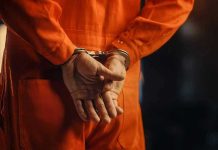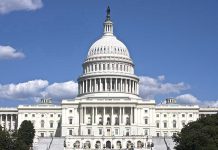
An attempted assassination of President Trump—during his 2024 campaign—now faces a chaotic trial marked by courtroom disorder and fierce questions about justice for attacks on conservative leadership.
Story Snapshot
- Jury selection in the trial of Ryan Routh, accused of trying to assassinate Donald Trump, is mired in delays and controversy.
- The defendant’s self-representation and erratic legal maneuvers challenge courtroom order and raise concerns about a fair trial.
- Federal prosecutors highlight months of premeditation and serious security threats to the president.
Contentious Jury Selection in a Politically Charged Trial
Jury selection began in early September 2025 for the high-stakes trial of Ryan Routh, the man accused of attempting to assassinate Donald Trump at his West Palm Beach golf club last year. The process has quickly become bogged down by delays and disputes, with Routh representing himself and submitting a flurry of unconventional and disruptive motions. The court has struggled to maintain order as prospective jurors face intense scrutiny due to the case’s high profile and the defendant’s unpredictable behavior, fueling concerns about whether an impartial jury can be seated.
Opening statements are scheduled for September 11, 2025, but the road to this point has been turbulent. Routh’s self-representation has given rise to courtroom challenges rarely seen in such a serious federal case. The defendant has attempted to call controversial witnesses and filed unusual motions, including a bizarre request for a physical confrontation with the president—moves swiftly denied by the presiding judge. These maneuvers have drawn judicial warnings and forced standby counsel to be on alert, highlighting the precarious balance between the rights of the accused and the orderly administration of justice.
Security Failures and the Ongoing Threat to Conservative Leadership
The alleged attack occurred on September 15, 2024, at Trump’s private Florida golf club—an environment already under heightened security following a prior, unrelated attempt on Trump’s life in Butler, Pennsylvania. Prosecutors assert that Routh’s actions were meticulously planned, involving months of surveillance, attempted purchases of military-grade weapons, and a calculated effort to track Trump’s movements. The Secret Service ultimately thwarted the plot, apprehending Routh after a tense confrontation and car chase. This incident has reignited national debate over the adequacy of protections for conservative leaders and the escalation of politically motivated violence in America.
Trump’s supporters and campaign have openly voiced concerns about the potential for such threats to undermine not only individual safety but the broader democratic process itself. The case has become a flashpoint in discussions about the state of law and order in the country, with many questioning whether current protocols are sufficient to deter determined actors willing to cross the line from rhetoric to violence. The scrutiny on the Secret Service and other protective agencies has intensified, as has the call for robust measures to uphold constitutional rights and the rule of law amid increasing polarization.
Legal Precedents, Political Implications, and Judicial Challenges
The Routh trial is poised to set important legal precedents, especially in the context of self-representation in high-profile federal cases. Judges and legal experts have flagged the difficulties that arise when a disruptive defendant wields the right to represent themselves, complicating trial logistics and raising questions about fairness for both the accused and the public. The court’s efforts to limit Routh’s witness list and curtail disorderly conduct are being closely watched, as the outcome could influence future approaches to courtroom management in cases involving political violence.
The impact of this trial extends well beyond the individuals directly involved. For Trump, his campaign, and millions of supporters, the proceedings symbolize both the ongoing risks faced by conservative figures and the resilience of American institutions under threat. The case has prompted renewed examination of security expenses, legislative safeguards, and the vital importance of ensuring that political violence is met with swift and decisive justice. As jury selection continues and the trial unfolds, the nation’s attention remains fixed on whether the justice system will deliver accountability and reinforce the constitutional values under attack.
Expert Perspectives and Broader National Consequences
Legal analysts point to the unprecedented courtroom challenges posed by Routh’s self-representation, warning that such cases test the very limits of trial management while upholding defendants’ rights. Security experts note that while the Secret Service’s swift action prevented disaster, the evolving nature of threats to political leaders mandates constant vigilance and adaptation. Academic commentators argue that the Routh case exemplifies the increased dangers facing U.S. democracy, urging policymakers and the public to prioritize both robust security and the preservation of constitutional protections.
Jury selection off to rocky start in case of man accused of trying to kill Trump – ABC News https://t.co/6ORqbSt1DP
— Fernando Oliver, Esq. (@Fernand46357857) September 8, 2025
Public debate remains split over how best to address the root causes of radicalization and political violence, with some seeing the system’s ability to bring alleged perpetrators to trial as a testament to institutional strength. Others warn that persistent threats and courtroom disruptions reflect deeper divisions demanding comprehensive legal and social responses. As the trial progresses, its long-term effects on federal protocols, the legal profession, and public confidence in the justice system will become increasingly clear, underscoring the stakes for America’s future and for those committed to defending its principles.
Sources:
Ryan Routh trial: Jury selection off to rocky start in Trump assassination attempt case
Jury selection off to a rocky start in Ryan Routh trial for Trump assassination attempt
Ryan Wesley Routh indicted for attempted assassination of President Trump


















